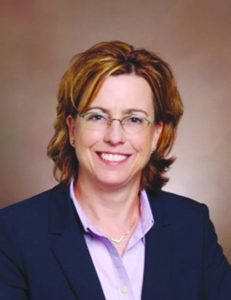Earth In Crisis: We Can Do This
Ideas For A Sustainable Community Include Innovative Public Market, Supporting Local Businesses, Increasing Park Land
By Tracey MacDermott
For the GPHN

During last month’s Greater Park Hill Community meeting, Margaret McRoberts from Stella Sustainability presented on an exciting project she’s working on for a possible food collaborative in the north/northeast part of the neighborhood.
Working with the Rocky Mountain Food Cooperative, McRoberts hopes to bring local and regional ranchers and farmers together to create a public market in Park Hill. RMFC has set clear environmental goals for its vendors, including net zero energy, water conservation and repurposing, sustainable materials and zero waste operations.
The proposed market would be in an area of Park Hill that is currently a food desert. One of the many goals is to provide economic opportunity to the local community, which will offer “entrepreneurial opportunities and support for neighbors in adjacent communities in need.”
Adding such a market would contribute to creating a more sustainable neighborhood and provide easier access for neighbors who could reasonably walk or bike to the store for groceries.
Per the Institute of Sustainable Communities, a sustainable community is defined as one which “manages its human, natural, and financial capital to meet current needs while ensuring that adequate resources are available for future generations.” How would RMFC help contribute to this definition should they come to the neighborhood? Immediately, they would meet the goal of bringing a reliable food supply that optimizes local production. That is a key element in social well being.
Other elements of a sustainable community include:
• Leadership, Civic Engagement and Responsibility
• Ecological Integrity
• Economic Security
Greater Park Hill Community, Inc. has been practicing the first goal by providing our award-winning newspaper to your doorstep (if you are reading this, would you be willing to help deliver our paper to a nearby neighborhood block that isn’t currently receiving it? Reach out, and let us know.). We hold monthly community meetings, keep you up to date on public information and encourage participation from all members of our community.
Regarding Ecological Integrity, we provide food to neighbors through our food pantry, our weekend food program and a fresh farm food stand during the growing season. Our organization has met Denver’s Green Business certification and reached “Outstanding” status in the city’s Sustainable Neighborhood Program. Our own goals are to continue to transform our headquarters at 2823 Fairfax St. to net zero carbon, continue to educate the public on the climate crisis and be leaders in reducing our waste.
GPHC continues to reinvest in this community by sponsoring projects such as street art murals, food pantry, hiring members of our community and many other projects to promote economic security. We remain a champion of local news and local business, and believe that our residents continue to support our fellow neighbors and businesses by using them first. We create a circular economy right within our boundaries.
Let’s get back to the category of Social Well Being. A food cooperative specializing in local production not only provides fresh food to our residents, it helps our local ranchers and farmers and cuts down on the carbon emissions of bringing food to our tables. It helps connect each of us to the person growing the food we make for our families and friends.
The United Nations on Climate Change notes that greening cities with parks and gardens reduces CO2 and helps cool the area and reduces flooding. Parks, open space and community gardens are instrumental for meeting sustainable status.
Fully three years ago, the Denver Post reported on the decline of green space in Denver — our “city of parks” in reality has half of the national norm for park space. Our neighborhood could help increase the amount of park land by looking for opportunities to expand green space. We can work to keep our building footprints smaller, add gardens and protect open space. The obvious one you have been reading about includes converting the now-closed Park Hill Golf Course to a regional park that can be used for a variety of recreational activities.
While our Registered Neighborhood Organization and residents have done a tremendous amount of work to push us further as a sustainable community, we still have a long way to go. With the talent that resides in our boundaries I believe new ideas will emerge to help us take the next step. I look forward to hearing your ideas.
Tracey MacDermott is an at-large member of the board of Greater Park Hill Community, Inc., and immediate past chair. She was trained as a Climate Reality Leader in 2017, and is currently the Statewide Co-Chair of the Climate Reality Project for the 100% Committed Campaign. Contact MacDermott at traceymacdermott@gmail.com.
